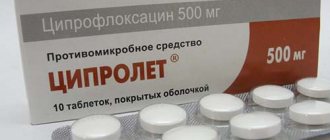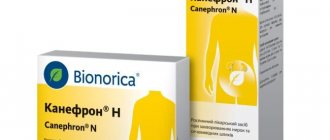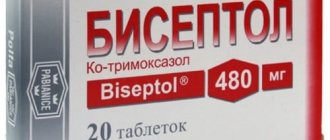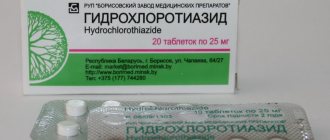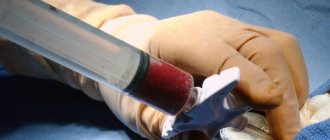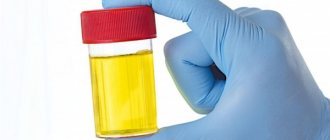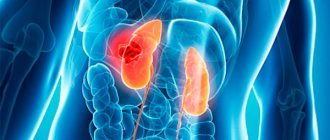Swelling after alcohol. Why do we swell with a hangover?
Why do you swell after drinking?
Alcohol causes improper redistribution of fluid in the body.
This happens because alcohol molecules from the bloodstream penetrate through cell membranes into soft tissues, and each alcohol molecule pulls along several water molecules. This is how water accumulates in the tissues, creating swelling. At the same time, fluid continues to leave the body naturally, reducing the volume of circulating blood. Therefore, a person with a hangover feels thirsty and has a dry mouth, although there is no dehydration as such: there is even too much fluid in the body, but all of it has accumulated in the tissues and cannot quickly return to the bloodstream.
How to relieve swelling after alcohol
To restore the normal balance of fluid in the body, you need to remove excess fluid with harmful substances from the tissues (and then from the body altogether), as well as drink fresh water and replenish the blood volume in the vessels with it.
If you just drink water, most of it will come out immediately, and you will have to drink like this for a very long time. Therefore, before drinking water, you should drink a glass of cucumber or cabbage brine (namely brine, not marinade) - the effectiveness of this folk method of relieving a hangover is also confirmed by modern medicine, because the brine replenishes the deficiency, which help maintain normal fluid levels in the body. Now you can safely drink plenty of water, and it will bring you back to normal very quickly.
If you don’t have brine on hand, then instead of regular water, doctors recommend drinking mineral water when you have a hangover: it contains useful minerals, enters the bloodstream much faster, and helps the functioning of the stomach and intestines. It is best to drink hydrocarbonate mineral water (for example, “Essentuki” or “Borjomi”): it will also restore the balance, which is shifted to the acidic side during a hangover.
Proper drinking during a hangover removes excess fluid from soft tissues, relieving swelling. And then it completely removes this liquid from the body with the remnants of harmful substances that have accumulated since yesterday evening. As a result, the body is cleansed - and you feel much better, because the symptoms of a hangover actually go away and are not masked by painkillers and tonics.
Improper redistribution of fluid in the body is partly responsible for hangover headaches. Many soft tissues in the body swell, including the lining of the brain. It begins to mechanically put pressure on the nerves, and this is one of the causes of headaches during a hangover. Read about other causes and how to deal with hangover headaches in a separate article.
Also read the article about how to effectively get rid of other standard symptoms of a hangover, and if any dangerous symptoms appear, you should immediately call a doctor.
What you shouldn’t do to avoid getting even more swollen from a hangover
It may seem that you can save yourself from swelling in advance by drinking water in the evening, before the hangover sets in. This version is wrong: water drunk in the evening will not do any good, but will only increase morning swelling. It only makes sense to take a drink if you already have a hangover.
Of all alcoholic drinks, beer produces the most severe swelling. The reason is the same: beer is usually drunk in large quantities, that is, a lot of liquid enters the body along with alcohol. This leads to the formation of severe edema.
What drinks help?
Drinking more than just water and mineral water when you have a hangover is beneficial. Doctors also recommend drinking drinks from this list when you have a hangover:
All of these drinks work, but they are similar in that they have a diuretic effect, which helps relieve swelling, remove harmful substances from the body and improve overall well-being. In addition to this, rosehip infusion, rowan infusion and non-alcoholic beer contain vitamins that the body needs during a hangover.
Coffee, tea and cocoa awaken the brain and stimulate the nervous system, increasing performance. Fermented milk drinks contain many vitamins and minerals, improve the functioning of the tract, and restore strength. Oatmeal broth contains vitamins, normalizes blood pressure and restores brain function.
It should be understood that coffee creates an increased load on the heart and increases the myocardium’s need for oxygen. If you have a hangover, this is undesirable, but it does not carry any big risks, and our expert does not believe that drinking coffee during a hangover is absolutely contraindicated.
Non-alcoholic energy drinks do more than just restore energy during a hangover. If the composition contains guarana extract, then in this case it acts as an amphetamine-like substance, expelling excess fluid from swollen tissues and thereby promoting the correct redistribution of fluid in the body. And without swelling, your head won’t hurt so much, and the whole body will get rid of poisons faster.
Please note that you should not drink energy drinks while hungover if your blood pressure is more than 10% higher than normal. And do not drink more than two 0.25 liter cans per hangover day: regularly exceeding doses of energy drinks leads to addiction.
Read interesting and funny articles on our blog! * Molinari's most sought after sambuca.
Procedures and medications for swelling after alcohol
The following procedures that improve metabolism and blood circulation also help relieve swelling and detoxify the body:
- bath (if there are no heart problems)
- contrast shower (if there are no heart problems)
- salt bath
- vomiting (can be induced specifically to quickly relieve a hangover)
- short but intense physical activity (prohibited for heart problems, as well as after heavy drinking)
In addition, there are medications that help relieve swelling and reduce headaches during a hangover: aspirin, veroshpiron and magnesia. Under the influence of alcohol, red blood cells in our blood stick together into microclots, causing swelling and headaches. Aspirin (acetylsalicylic acid) loosens clots, releasing red blood cells. However, aspirin is absolutely not compatible with alcohol, and you can take it no earlier than 6 hours after your last drink.
Veroshpiron (spironolactone) is a diuretic drug that promotes the proper redistribution of fluid in the body. For a hangover, veroshpiron should be taken in the usual therapeutic dosage: 200 mg once a day. Take as many days as the drinking session lasted, plus one more day.
Magnesia (magnesium sulfate) replenishes the lack of magnesium that is common in a hangover - and thereby saves from many unpleasant symptoms of a hangover: reduces swelling and headaches, improves the functioning of the heart and nervous system, reduces the load on the liver, relieves anxiety and restores strength.
Some branded anti-hangover drugs also effectively eliminate swelling: for example, DrinkOFF, , Morning Care.
What to do if you gain weight from a hangover
Swelling from a hangover can lead to noticeable weight gain. This happens because too much fluid accumulates in the intercellular spaces. Drinking plenty of fluids and taking diuretics will expel excess fluid from the body, and the weight will return to normal.
What to do
To prevent your face from becoming swollen the next morning after drinking alcohol, you should not drink a lot of water before going to bed. The liquid will not have time to leave the body, but will settle in the tissue membranes of the face and body.
Drinking plenty of fluids is indicated after sleep. But it should be water, not alcoholic drinks. Drinking beer is also prohibited, as it causes even more swelling. During a hangover, water not only relieves swelling, but also helps remove ethanol breakdown products, which improves a person’s well-being.
Before drinking water, it is recommended to drink a glass of cucumber or cabbage pickle. This ancient remedy is also supported by traditional medicine. The brine will replenish the missing salts that maintain fluid levels in the body.
With small
A slight swelling goes away quite quickly if you completely abstain from alcohol. As a result, blood flow and urination are normalized, kidney microcirculation and metabolism improve.
With strong
This type of swelling often occurs in alcoholics. If you abuse alcohol, it is almost impossible to restore the normal contours of your face unless you completely give up drinking. Not every person is able to do this. It is recommended to gradually reduce the dose of alcohol, not to drink alcohol and not to snack on salty foods.
Drinking plenty of fluids is indicated after sleep. During a hangover, water not only relieves swelling, but also helps remove ethanol breakdown products, which improves a person’s well-being.
If swelling does not go away, you should contact a medical facility to check the condition of the internal organs: liver, kidneys, heart, thyroid gland.
Furosemide and alcohol - is such a combination dangerous?
Ideally, it is strictly forbidden to take any medications together with alcohol, since alcohol is a powerful toxin and, when interacting with medications, causes unpredictable reactions, provokes and increases the severity of adverse reactions of medications. For some drugs, alcohol can work as a blocker of the therapeutic effect, while for others, combining it with alcohol can have serious consequences and even lead to death. Furosemide also belongs to similar drugs.
Furosemide and alcohol
The drug Furosemide is a diuretic drug, and, being a powerful diuretic, is actively used in modern medicine to get rid of swelling and in the complex therapy of hypertension.
The tendency to swelling in patients can be caused by various problems:
- Obesity;
- Myocardial failure;
- Kidney disorders;
- Cirrhosis, etc.
Usually, for such diseases, patients are prescribed drugs like Furosemide. Usually the drug is taken once a day. Since Furosemide has a strong diuretic effect, a single dosage is often ½ tablet. The final dosage is determined only by a specialist.
The effect of the medicine begins approximately half an hour after taking the drug, however, the peak effect occurs in the second or third hour after administration and lasts for 3-6 hours.
After taking Furosemide, the hypertensive crisis quickly stops, which is explained by the weakening of the muscle tissue of the vascular walls due to a natural decrease in the volume of blood circulating through the veins.
The drug has many negative reactions, so it must be taken with caution.
Some patients develop reactions like:
- Visual and hearing impairments;
- Anemia;
- Arrhythmic or tachycardic abnormalities and other cardiovascular disorders;
- Nervous system disorders in the form of dizziness or lethargy, paresthesia or headache, confusion, etc.;
- Disorders of water-salt metabolism;
- Skin reactions in the form of urticaria, dermatitis, purpura, erythema, vasculitis, etc.;
- Urogenital disorders such as nephritis, hematuria, erectile dysfunction.
Some people use Furosemide to relieve severe alcohol intoxication, however, along with alcohol toxins, the drug also removes substances necessary for the body. Let's look in more detail at whether these substances can be taken together.
Alcohol compatibility
Furosemide is one of the most powerful diuretic drugs, however, many patients speak very negatively about it, since the drug, while eliminating one ailment, provokes many others. The drug can cause allergic reactions, negatively affect cardiac activity, and disrupt nervous system activity. Similar reactions develop in patients when taking alcohol, and if it is supplemented with Furosemide, the negative reactions are further aggravated.
The drug does not have specific antidotes, so not all patients are able to save their lives when abusing Furosemide. Therefore, when mixing it with alcohol, you should think about the likely consequences. The maximum that doctors can do is to carry out symptomatic therapy with water-salt correction.
Furosemide was even classified as a banned drug that athletes should not take. Anti-doping agencies consider it a doping drug, although until recently it was not one. It is classified as a doping drug because Furosemide quickly removes other doping agents from the athlete’s body, which negatively affects the doping control procedure. Many athletes quickly lost weight with its help. But now the drug is officially banned among athletes.
Possible consequences
Furosemide is often used in the treatment of hangover syndrome, as it promotes the rapid removal of alcohol toxins from the body.
But to eliminate a hangover, the drug is usually used in conjunction with heavy drinking to eliminate swelling and restore normal blood flow. Such anti-hangover therapy should only be carried out under medical supervision. When treating abstinence, alcohol is practically absent from the blood, so the risks of complications are minimal. If you take Furosemide immediately after drinking alcohol or, conversely, then there is a high probability of developing irreversible complications. Adverse reactions will definitely appear, among which the most dangerous are heart and liver problems. In addition, there is a significant increase in the effect of Furosemide, which leads to an overdose, which is very dangerous and fatal. Therefore, it is worth thinking before taking such a risk.
conclusions
Let's summarize. It is impossible to consider the option of combining alcohol with Furosemide, because such a mixture can be fatal. Reviews from doctors are unanimous - you should not drink furosemide after alcohol. Moreover, they do not recommend taking Furosemide without permission, only as prescribed by a doctor and strictly following the dosage.
You can drink the drug after drinking alcohol only after at least 6 hours, and alcohol after taking pills can be taken after 4 hours. This is exactly how long it takes for the bulk of the drug to disintegrate. As already mentioned, Furosemide does not have an antidote, therefore, if the drug is abused excessively, and even more so when combined with alcohol, patients have little chance of salvation
Groups of drugs for hangover symptoms
Hangovers come in varying degrees of severity. It usually manifests itself as headache, nausea, thirst, general weakness, anxiety, dizziness, changes in blood pressure, etc. A number of groups of drugs help eliminate symptoms:
- non-steroidal anti-inflammatory drugs;
- adsorbents;
- water-electrolyte balance correctors;
- vitamins and organic acids;
- nootropics;
- sedatives;
- diuretics;
- specialized means.
Is it possible to take Furosemide after drinking?
Most medications are not recommended to be combined with strong drinks. Furosemide for a hangover is a rather dubious combination. To understand whether you can take the drug after alcohol, you need to understand the properties of the former.
Diuretics for hangover
In case of alcohol intoxication, experts advise drinking more fluids. In this way, the body can quickly get rid of alcohol decomposition products. Diuretics (diuretics) speed up the detoxification process during a hangover.
Diuretics are quite strong drugs that can both cure and negatively affect the patient’s condition. Therefore, the decision to use them in anti-hangover therapy should be balanced.
Among the contraindications to medications in this group:
- liver and kidney diseases;
- problems with water-electrolyte balance and urine flow;
- digitalis intoxication (poisoning with cardiac glycosides).
Diuretics should be taken with caution by persons suffering from hypotension, diabetes mellitus and diarrhea. In case of pancreatitis and myocardial infarction, you should definitely consult a specialist. Only an experienced doctor is able to objectively assess the clinical picture and prescribe adequate therapy.
How Furosemide works
Not everyone knows how diuretics work in treating a hangover. The medication has the ability to suppress reverse (primary) filtration of urine. Due to this effect, secondary urine becomes more concentrated.
Pharmacy products
With chronic alcoholism, it will not be possible to get rid of swelling without the help of a doctor. Binge drinkers will require hospital treatment, including IV drips. Therapeutic measures will help restore the acid-base balance and levels of vitamins and microelements, and improve the functioning of internal organs.
Citizens who do not drink alcohol in large quantities will be able to cope with swelling on their own. To do this, you should take diuretics (for example, Furosemide), sorbents (activated carbon), vitamins (C is the most useful) and drink mineral water with a high alkaline content.
Special medications will help you avoid hangover syndrome - Antipohmelin, Medichronal, Alkozeltzer, etc. Succinic acid has earned good reviews. This remedy is recommended to be used both before drinking strong drinks and during a hangover. Acid helps cope with severe poisoning of the body. But it must be remembered that the drug should not be taken for chronic gastrointestinal diseases.
How to relieve puffiness after a feast
Excessive intake of alcohol into the body causes a different reaction when it is broken down. Edema is one of the signs of withdrawal syndrome, characterized by fluid retention in the cells. It puts excessive stress and causes serious discomfort.
Swelling after drinking alcohol occurs on the face or limbs. People who abuse alcohol have a clearly noticeable puffy face with swollen eyelids. Fatty liver may occur.
But unlike people who drink moderately, it persists constantly. Swelling does not always occur during prolonged drinking. Sometimes one evening feast is enough - and you can seriously swell by the morning.
Causes of edema
- A common cause of edema from alcohol is drinking strong drinks when washed down with large amounts of regular or carbonated liquid.
- Swelling can also occur with certain types of snacks during a feast, for example, herring, canned tomatoes or mushrooms. In this case, salt contributes to the accumulation of excess fluid.
- The third option is disruption of the excretory system due to a large amount of alcohol. Sometimes swelling from alcohol is also associated with the blood supply system, which causes poor metabolism in the tissues.
- Due to instability in the acid-base balance during dehydration from alcohol, the body tries to retain the remaining fluid and accumulate it. This is thought to be the cause of the swelling.
- Edema appears against the background of an imbalance in all organ systems after serious intoxication. Polysorb will help, more details here - https://ecohealthylife.ru/ochishchenie-organizma/kak-prinimat-polisorb.
If sudden swelling occurs, it is recommended to immediately stop further drinking alcohol.
Symptoms of complications
A clear sign of developing alcoholism is visible swelling in the feet. With chronic alcohol consumption, many diseases develop that cause swelling in different parts of the body.
These may be chronic cardiac disorders, high blood pressure, cirrhosis, ascites, hepatitis.
Sometimes the appearance of swelling is facilitated by a developing cold with inflammation of the mucous tissue. After drinking alcohol, swelling becomes more pronounced.
What to do?
But the presence of edema does not always indicate the development of the disease. It is enough to change the nature of drinking alcohol during a feast. For example, to dull the strong taste of alcohol, it is important to use light and fresh food – vegetables and fruits – rather than carbonated drinks. It is also recommended to exclude pickles.
Swelling is a sign of impairment and intoxication from alcohol, therefore, when removing swelling, it is recommended to treat withdrawal symptoms. This will reduce the duration of treatment for symptomatic consequences of alcohol.
Swollen arms, legs and face will not cause discomfort if alcohol syndrome is treated correctly. With a single drink of alcohol, the puffiness usually disappears within two days. More frequent consumption of alcohol leads to swelling for several days, because in this case the microcirculation in the kidneys suffers permanent damage.
Relieving swelling
The first treatment for edema is based on restoring the body. Since alcohol contributes to the destruction of vitamin C in tissues, it is better to drink acidified water during a hangover.
Lemon juice
To do this, lemon juice is diluted in ordinary purified water. In order for the brain to replenish its energy resources, a little sugar is added to the liquid. Natural cleansers - activated carbon, any sorbent or Regidron - will help restore the water-electrolyte balance from alcohol poisoning.
Rose hip
Rosehip has an excellent natural diuretic effect. Its fruits contain a powerful dose of vitamin C. The plant is poured with boiling water and cooked over low heat for about 15 minutes, then left for 2 hours to squeeze out all the beneficial substances. Before drinking, the drink is filtered and a little sugar is added for taste.
It is not recommended to abuse rose hips for gastritis, and during an exacerbation such therapy is prohibited. You can also use other herbs as a diuretic for alcohol syndrome - milk thistle, birch and linden leaves. Milk thistle meal will help relieve intoxication.
Juniper, oregano and motherwort can be brewed together, but in case of any hematopoietic disorders, this collection is not recommended.
Additional methods
As for diuretics, it is better to replace them with herbal infusions. The well-known drug Furosemide can greatly reduce blood pressure, so if it is overdosed, there is a danger of worsening the condition of alcohol syndrome.
- It is important to support the body with vitamins. You can use ready-made synthetic drugs in the form of additives. And the best option would be to drink warm tea with lemon, honey, and dry blueberries. A large amount of fruit will not hurt either.
- If swelling after alcohol is accompanied by chills, you can take a bath with sea salt. It is important to use washcloths for rubbing. The body is vigorously rubbed with a hard washcloth to restore blood circulation. Then it is recommended to lie in a warm bath. This will slightly restore the skin's salt balance and remove the effects of alcohol toxins.
- To increase sweating, rub yourself with a terry towel, put on warm pajamas and wrap yourself in a blanket. Increased release of fluid from the body through the skin helps relieve swelling. After water procedures, a diuretic mixture is used, which includes bear ears, corn silk and mint.
- A good way to remove excess fluid is bay leaf. Its infusion is drunk not only in case of water damage in the tissues from alcohol, but also in case of numerous diseases caused by alcoholism. It is enough to pour 4 sheets of 150 ml of boiling water, leave and take a teaspoon every 20 minutes.
- After active drinking and when severe swelling occurs, it is important to normalize sleep. Rest should last at least 8 hours. If you have overeated in the evening, it is better to avoid eating at night. If hunger reminds you of itself, fermented milk products will help. Beneficial bacteria will promote better digestion, preventing constipation from alcohol.
10 hangover hacks
(Video: Remove traces of a hangover: 10 life hacks)
Cosmetics and potatoes
Usually, cosmetics affect the visible effect of edema due to alcohol. Therefore, applying tons of cosmetics to yourself is not recommended. But raw potatoes will help reduce swelling of the eyelids. It is crushed into a paste, placed in gauze and applied to closed eyes. If puffiness is present in all parts of the face, then crushed potatoes are applied more widely.
Welding
In addition to potatoes, strong tea leaves are a great way to relieve swelling. To do this, soak a cloth in tea (preferably green) and apply it to the face. The procedure takes about 25 minutes, after which the napkin is soaked in the tea leaves again. It’s good if you have special gel face pads at home. They are cooled in the refrigerator and applied to a tired, swollen face.
Traditional methods
Traditional methods of treatment will help remove swelling after drinking alcohol. Most home remedy recipes are based on medicinal herbs. Decoctions, tinctures, compresses improve blood circulation and have a diuretic effect. You can eat vegetables and fruits that regulate the water-salt balance: melons, pumpkin, zucchini, cabbage, watermelons, etc.
Raw potatoes
A mask is prepared from potatoes to cope with swelling under the eyes and swelling of the entire face. You should chop the vegetable on a grater and apply the resulting pulp to your face. You need to leave the mask on for 20 minutes and then remove its remnants. After the procedure, you need to moisten a cotton swab with warm boiled water and wipe your face with it.
An effective remedy can be prepared from grated raw potatoes (1 tablespoon of gruel) and sauerkraut (1 tablespoon). Mix the ingredients and apply to the face. Exposure time: 30 minutes.
Read also: How to get rid of the smell of tobacco smoke
Fresh parsley
Parsley leaves and root help cope with swelling that appears in the morning after drinking alcohol the night before.
To prepare the medicine, you should grate the root of the plant, and then apply the mixture to your face, not forgetting about your eyelids - their swelling is most noticeable. The mask exposure time is 20 minutes, after which its remnants are removed with a cotton swab. After the procedure, there is no need to apply cream, because parsley has not only an anti-edematous, but also a nourishing effect.
Decongestant tea is prepared from parsley. You need to cut the roots and leaves of the plant into small pieces and add the seeds. Pour the mixture into a cup, filling it a quarter full. Add boiling water and leave for 10 minutes. Then strain and take. Parsley tea can be drunk all day in a volume of up to 2 liters. It helps remove excess water from the body.
Fresh cucumber
You can get rid of swelling with the help of fresh cucumber. You need to mix 20 ml of cucumber juice with the same amount of aloe juice, add a pinch of corn starch and 3 drops of olive oil. Mix everything thoroughly and apply to the face. Leave the mask on for 15 minutes and rinse off any remaining residue with cool water.
You can use an easier method: take a fresh cucumber out of the refrigerator, grate it and apply the resulting mass to your face. Another option is to place cold slices of fresh cucumber on the swollen areas.
Pharmaceutical chamomile
This plant is often used for home treatment. Chamomile will also help with swelling. To prepare the infusion, mix 1 tbsp. l. dry chamomile and calendula and pour 1 cup of boiling water. The composition must be left to cool completely, then it is filtered. It is recommended to use the infusion as a lotion. You can pour the prepared liquid into a container for freezing, and at the right time wipe your face with ice cubes.
It is recommended to combat eye swelling with the help of infusions of chamomile and sage (1 tablespoon each of raw materials and 1 glass of boiling water). One cotton swab should be dipped in a warm infusion, and the other in a cold infusion and alternately applied to the eyes.
Chamomile will help with swelling. To prepare the infusion, mix 1 tbsp. l. dry chamomile and calendula and pour 1 cup of boiling water.
Chamomile infusion is taken orally. 1 tsp. dry raw materials should be poured with 1 cup of boiling water and left for 3-4 hours until the liquid has cooled. The infusion can be drunk up to 3 times a day, 1/3 cup. This remedy will help not only relieve a person from the external factors of alcohol poisoning, but also normalize the functioning of internal organs and systems, for example, the cardiovascular system.
